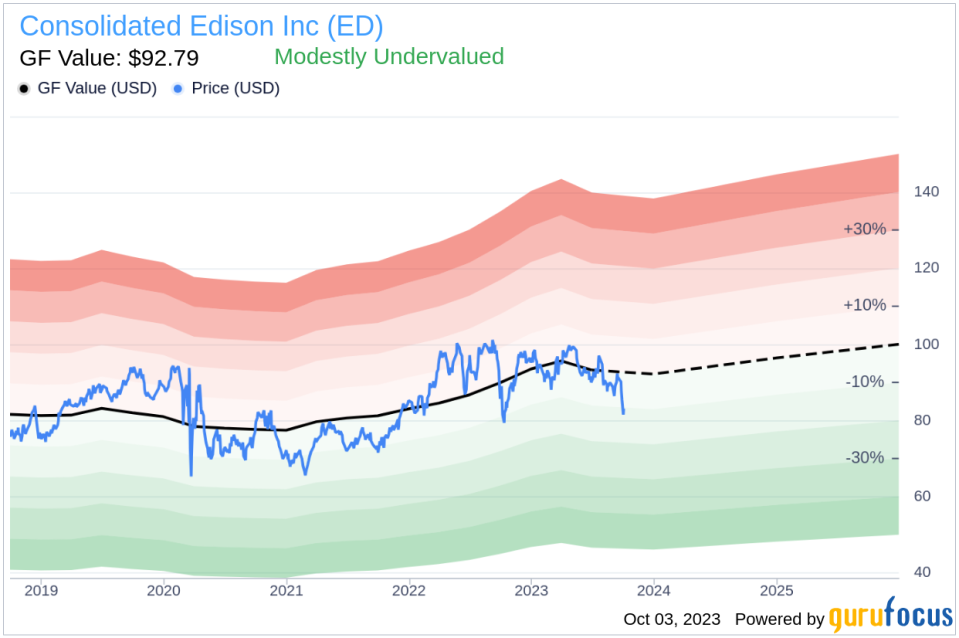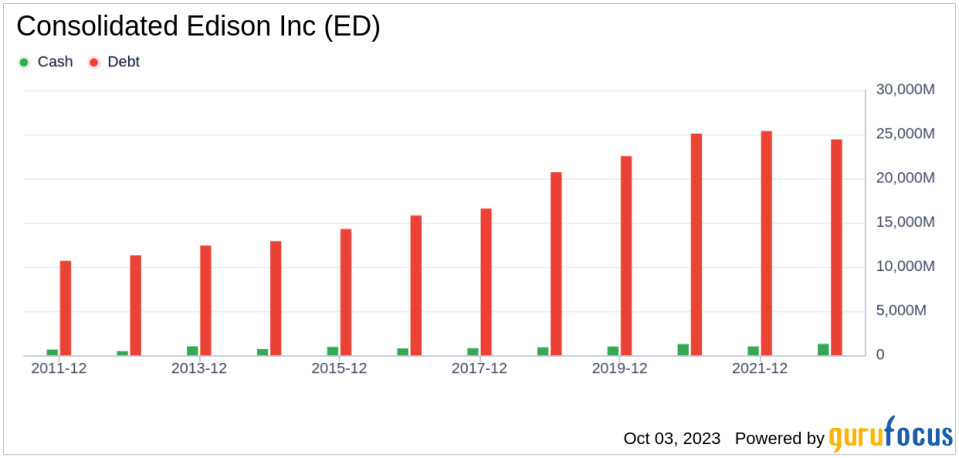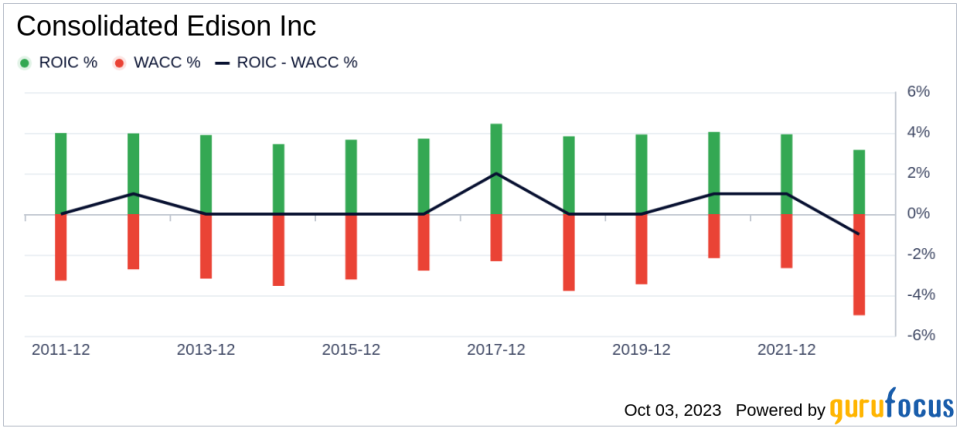Unlocking Consolidated Edison (ED)'s Value: Is It Worth More Than Its Market Price?
Consolidated Edison Inc (NYSE:ED) saw a daily gain of 1.91%, despite a 3-month loss of 7.88%. With an Earnings Per Share (EPS) (EPS) of 6.95, the question arises: Is the stock modestly undervalued? This article aims to answer this question by analyzing the company's valuation, financial strength, profitability, and growth. We encourage you to read on for a comprehensive understanding of Consolidated Edison's intrinsic value.
Company Overview
Consolidated Edison Inc is a holding company for Consolidated Edison of New York, or CECONY, and Orange & Rockland, or O&R. These utilities provide steam, natural gas, and electricity to customers in southeastern New Yorkincluding New York Cityand small parts of New Jersey. The two utilities generate nearly all of Con Ed's earnings following the sale of its clean energy business to RWE in early 2023.
Trading at $83.18 per share, the company has a market cap of $28.70 billion. Compared to its GF Value of $92.79, the stock appears to be modestly undervalued.
Understanding the GF Value
The GF Value is a proprietary measure that represents the current intrinsic value of a stock. It is calculated based on historical trading multiples, a GuruFocus adjustment factor, and future business performance estimates. The GF Value Line on our summary page gives an overview of the fair value that the stock should be traded at.
Consolidated Edison's stock appears to be modestly undervalued based on the GF Value calculation. Given its relative undervaluation, the long-term return of its stock is likely to be higher than its business growth.
Link: These companies may deliver higher future returns at reduced risk.
Financial Strength Analysis
Companies with poor financial strength pose a high risk of permanent capital loss to investors. To avoid this, it's crucial to research and review a company's financial strength before deciding to purchase shares. Key indicators of financial strength include the cash-to-debt ratio and interest coverage.
Consolidated Edison has a cash-to-debt ratio of 0.08, which ranks worse than 74.17% of 480 companies in the Utilities - Regulated industry. The overall financial strength of Consolidated Edison is 4 out of 10, indicating that the financial strength of Consolidated Edison is poor.
Profitability and Growth
Investing in profitable companies carries less risk, especially in companies that have demonstrated consistent profitability over the long term. Consolidated Edison has been profitable 10 years over the past 10 years. During the past 12 months, the company had revenues of $15.50 billion and Earnings Per Share (EPS) of $6.95.
Its operating margin of 16.69% is better than 61.08% of 501 companies in the Utilities - Regulated industry. Overall, GuruFocus ranks Consolidated Edison's profitability as fair.
Growth is a crucial factor in the valuation of a company. The 3-year average annual revenue growth of Consolidated Edison is 4.9%, which ranks worse than 65.07% of 481 companies in the Utilities - Regulated industry. The 3-year average EBITDA growth rate is 2.3%, which ranks worse than 58.68% of 455 companies in the Utilities - Regulated industry.
ROIC vs WACC
Another method of determining the profitability of a company is to compare its return on invested capital (ROIC) to the weighted average cost of capital (WACC). For the past 12 months, Consolidated Edison's ROIC is 3.3, and its WACC is 5.46.
Conclusion
Overall, Consolidated Edison (NYSE:ED) stock appears to be modestly undervalued. The company's financial condition is poor and its profitability is fair. Its growth ranks worse than 58.68% of 455 companies in the Utilities - Regulated industry. To learn more about Consolidated Edison stock, you can check out its 30-Year Financials here.
To find out the high-quality companies that may deliver above-average returns, please check out GuruFocus High Quality Low Capex Screener.
This article first appeared on GuruFocus.




